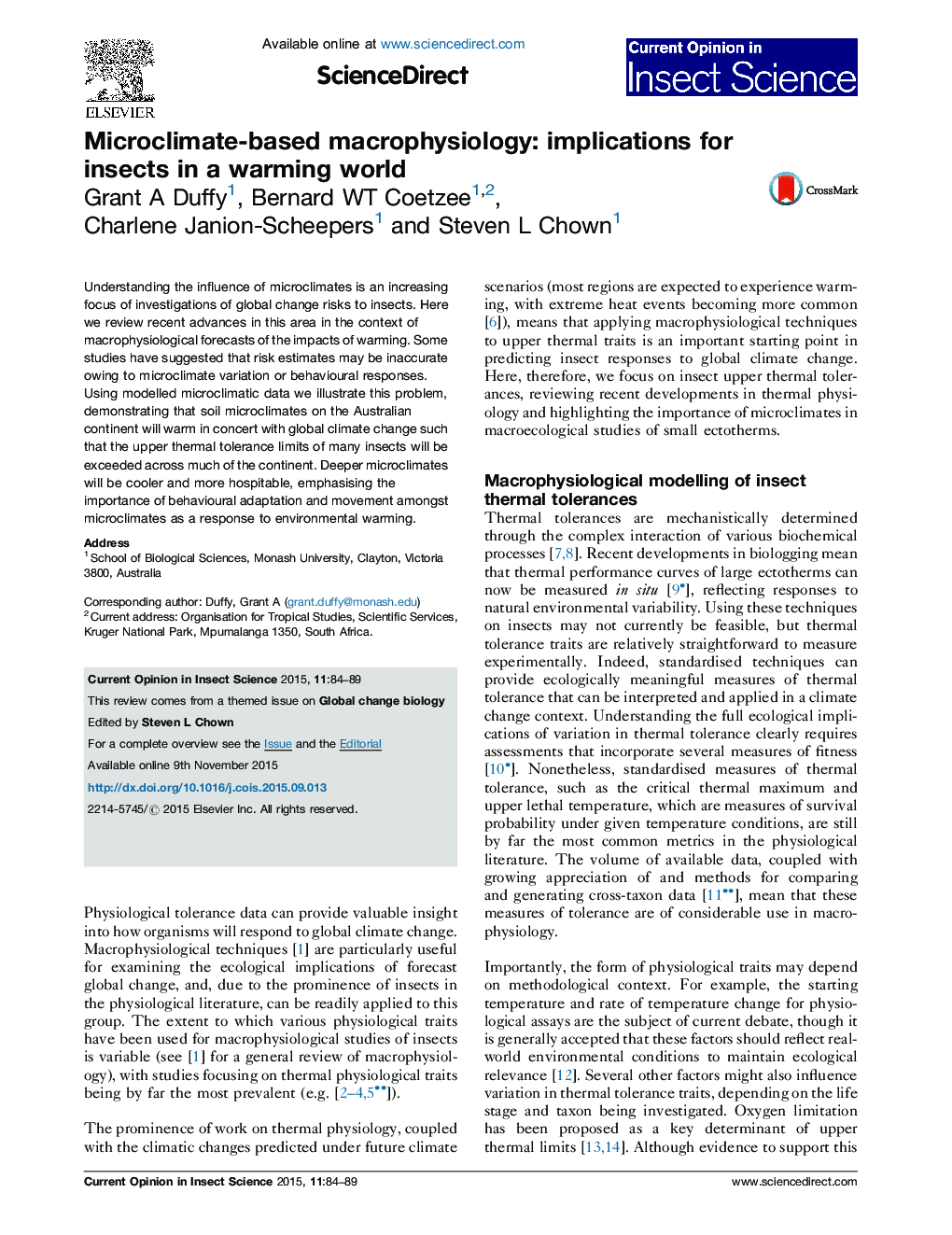| Article ID | Journal | Published Year | Pages | File Type |
|---|---|---|---|---|
| 4508160 | Current Opinion in Insect Science | 2015 | 6 Pages |
•Macrophysiological modelling at microclimate scales is rapidly advancing.•Climate change will likely exceed the upper thermal limits for many insects.•Plastic or evolutionary capacity to respond to warming appears limited.•Behavioural thermally-mediated responses and interactions amongst individuals and species remain key research challenges.
Understanding the influence of microclimates is an increasing focus of investigations of global change risks to insects. Here we review recent advances in this area in the context of macrophysiological forecasts of the impacts of warming. Some studies have suggested that risk estimates may be inaccurate owing to microclimate variation or behavioural responses. Using modelled microclimatic data we illustrate this problem, demonstrating that soil microclimates on the Australian continent will warm in concert with global climate change such that the upper thermal tolerance limits of many insects will be exceeded across much of the continent. Deeper microclimates will be cooler and more hospitable, emphasising the importance of behavioural adaptation and movement amongst microclimates as a response to environmental warming.
